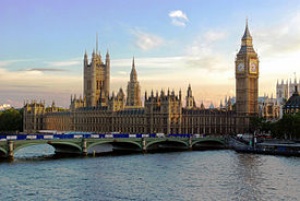WTTC: UK tourism sector will weather Brexit storm

The UK tourism sector is expected to hold up in 2017, despite continued uncertainty due to Brexit, reduced consumer spending power, and the weaker pound.
That is according to a new World Travel & Tourism Council Economic Impact Report 2017, released today.
With the fall in value of the pound after the Brexit vote, visitor exports, which is money spent by foreign visitors in a country, is forecast to grow by 6.2 per cent this year, as the impact of the UK having become a cheaper destination for overseas visitors become clear.
In 2016, business and leisure travel’s total contribution to the UK economy rose by 2.6 per cent to £209 billion or 10.8 per cent of GDP.
The sector supported over four million jobs, which is 11.9 per cent of the country’s total employment, according to the research.
ADVERTISEMENT
Outbound travel to take the hit, domestic travel slowing down the economic impact of the Brexit vote is expected to have diverging implications for domestic and international business and leisure travel spending in 2017.
While the spending of international visitors is expected to increase, domestic and outbound spend in the UK will suffer.
Due to higher inflation and weakened consumer spending prospects, the domestic spending outlook for 2017 has been downgraded from 3.2 per cent to 2.6 per cent.
Furthermore outbound expenditure is forecast to decrease significantly in 2017 (down 4.2 per cent), as the drop in value of the pound will continue to impact UK citizens’ spending power and their propensity to holiday abroad.
WTTC president David Scowsill said: “There is still widespread uncertainty on the exact impact Brexit will have on the tourism sector.
“While we generally expect business to hold up, we call on the UK government to focus on four key issues, so that this sector can continue to create jobs and to boost the country’s economy.”
Scowsill pointed to mobility of labour, access to the EU Open Skies framework, visas, and border systems as key to the future of the tourism sector after Brexit.

